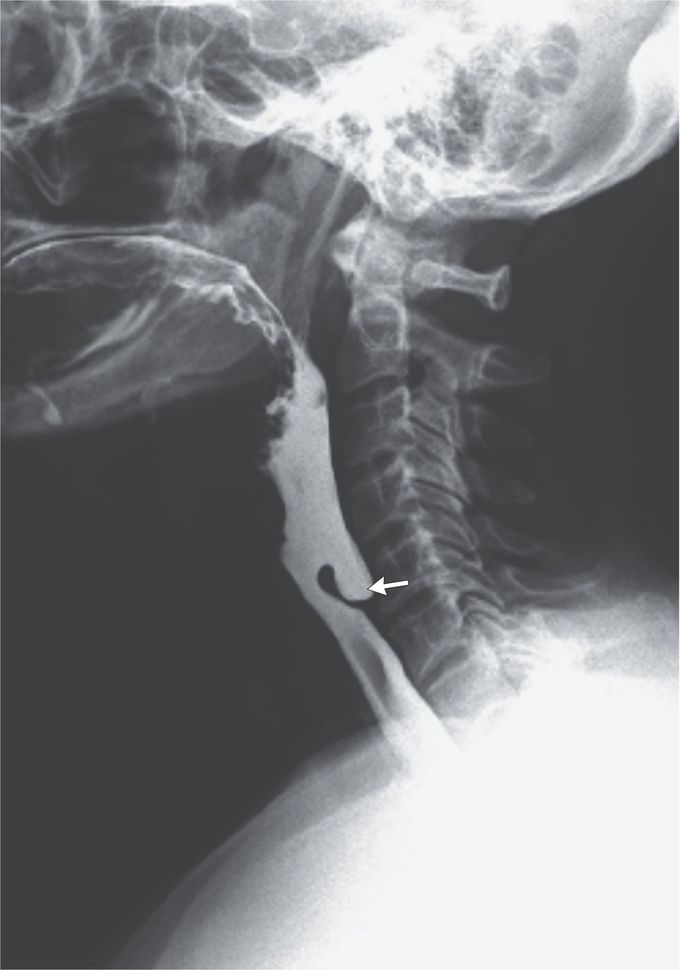


Zenker’s Diverticulum
A 67-year-old man presented to the gastroenterology clinic with an 8-month history of progressive dysphagia, weight loss, regurgitation, and halitosis. A physical examination revealed no palpable cervical mass. Laboratory studies showed a moderately low serum albumin level. A barium swallow examination showed stasis of barium in the upper esophagus with an outpouching lesion anterior to the C5 and C6 vertebrae (arrow). Upper gastrointestinal endoscopy revealed a pharyngoesophageal diverticulum, or Zenker’s diverticulum. Zenker’s diverticula are herniations of the hypopharynx through a defect in Killian’s triangle, an area bound by the inferior pharyngeal constrictor muscles and cricopharyngeus muscles. These diverticula are thought to result, in part, from abnormalities of the upper esophageal sphincter. Small diverticula can be asymptomatic and left untreated, whereas large diverticula can result in dysphagia, regurgitation, chronic aspiration, or cough, and surgery may be warranted. In this patient, an endoscopic Zenker’s diverticulectomy was performed. Within 3 days after the surgery, the dysphagia, regurgitation, and halitosis had resolved, and the patient remained asymptomatic at a follow-up visit 8 months later. Source: nejm.org
Occur from the site called killian dehiscence it is a weak area from which mucosal layer herniate....zenker devrticul is not true diverticulum


